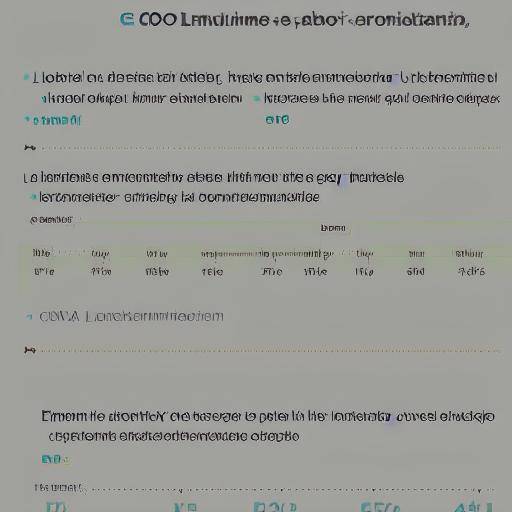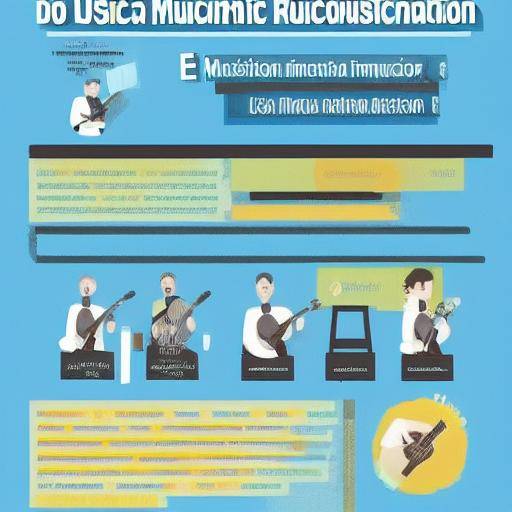
Introduction
Have you ever noticed how music can influence your level of concentration and energy while working? The relationship between music and productivity is a fascinating theme that has been studied for decades. In this article, we will thoroughly explore the impact of music on our daily productivity, how listening to music can affect our performance and well-being in the working environment. We will discover the history and evolution of this relationship, the current benefits, challenges and trends, as well as practical advice, expert opinions, case studies and future predictions. We immerse ourselves in the fascinating world of music and its influence on our productivity.
History and background
The influence of music on productivity has been studied since ancient times. Civilizations like Greek and Roman already recognized the power of music to influence the mood and daily activities. Throughout history, music has been used to improve concentration, increase motivation and reduce stress in various cultures.
In the workplace, the relationship between music and productivity has experienced significant evolution. Since the introduction of environmental music in factories during the Industrial Revolution to the current digital era, the influence of music on performance has been the subject of numerous studies and debates.
An important milestone in the evolution of this relationship was the discovery of the "Mozart effect", which suggests that classical music can temporarily improve cognitive skills. This finding generated a growing interest in the effects of music on the brain and its impact on productivity.
Deep analysis
The benefits of music in productivity are diverse. Scientific studies have shown that music can improve mood, increase concentration, reduce stress and stimulate creativity. In addition, proper music can act as a stimulant for monotonous tasks, while it can facilitate relaxation in stressful environments.
Despite its benefits, the relationship between music and productivity also poses challenges. The choice of music, volume and individual preferences can influence the effectiveness of their impact. Some research suggests that music with lyrics can distract from certain tasks that require a high level of concentration, while others find benefits in the specific combined musical activity.
Comprehensive review
Music can be used in various fields of work. In creative environments such as advertising and design, music can improve inspiration and the generation of ideas. In the field of education, music can improve the attention and retention of information. In more structured environments, music can help regulate the pace of work and increase efficiency.
To maximize the influence of music on productivity, it is crucial to consider individual preferences, the working environment and specific goals. The choice of instrumental music, custom playlists and the integration of music into labour welfare strategies are some best practices.
Comparative analysis
The impact of music on productivity is closely related to the concept of "listening music" in the working environment. Music can improve the mood, morality and cohesion of the team. However, it is essential to consider individual preferences and establish clear guidelines to ensure a harmonious working environment.
Accessible practical advice and advice
- Identify your musical preferences and experiment with different genres and rhythms to determine what kind of music helps you concentrate and increase your productivity.
- Use headphones or create spaces designed to listen to music in shared environments, respecting the needs and preferences of your colleagues.
- Consider the application of environmental music in the workplace, selecting playlists that adapt to the activities and mood of employees throughout the day.
Industry perspectives and expert reviews
Several experts in occupational psychology, neuroscience and talent management have addressed the impact of music on productivity from their respective fields of study. Their contributions have enriched the understanding of this relationship and stressed the importance of considering the well-being and motivation of employees in the design of efficient working environments.
Case studies and applications in real life highlight how companies and organizations have implemented musical strategies to improve employee performance and foster a more positive and creative working environment.
Future trends and predictions
As the technology and psychology of work continue to evolve, the integration of music in the working environments is expected to be increasingly important. Organizations are expected to incorporate innovative methodologies to evaluate and optimize the impact of music on productivity, customize musical experiences for their teams and promote emotional and mental well-being through music at the workplace.
Conclusion
Music and productivity are intrinsically interconnected, and understanding the impact of music on daily performance is crucial for job well-being and organizational success. Building on their power, companies can improve the working environment and performance of their employees, generating a positive impact on productivity and job satisfaction.
Frequently asked questions
**Can music negatively affect productivity at work? **Yes, in some cases inappropriate music may distract and affect the concentration on tasks that require a high level of focus.
**What kind of music is more conducive to increasing productivity? ** Instrumental music or soft lyrics are generally more effective in improving concentration and facilitating relaxation at work.
**What is the best way to implement music in the working environment? **It is important to consider individual employee preferences and establish clear guidelines for the use of music in shared environments. Creating custom playlists or selecting environmental music can be effective strategies.
**Can music at work improve team cohesion? **Yes, music can create a more enjoyable environment and foster cooperation among team members.
**Can the productivity of employees be affected by environmental noise? ** Excessive noise may negatively affect concentration and productivity. Correct music can help block unwanted noise and improve concentration.
**How can I find the right balance between music and concentration at work? **Experience with different musical styles and volumes to identify what kind of music helps you concentrate without distracting your attention from labor tasks.
Conclusion
The relationship between music and productivity is a fascinating field of study that continues to generate interest and debate. By understanding the impact of music on our daily performance, we can use this knowledge to promote healthier, creative and productive working environments.
In short, music can have a significant impact on our daily productivity, and making informed decisions about their use in the working environment, we can leverage their positive influence to improve our performance and well-being at work.















